Why Western tanks might help Ukraine beat Russia
After a year of war, the U.S. and its allies are sending armored vehicles to the fray

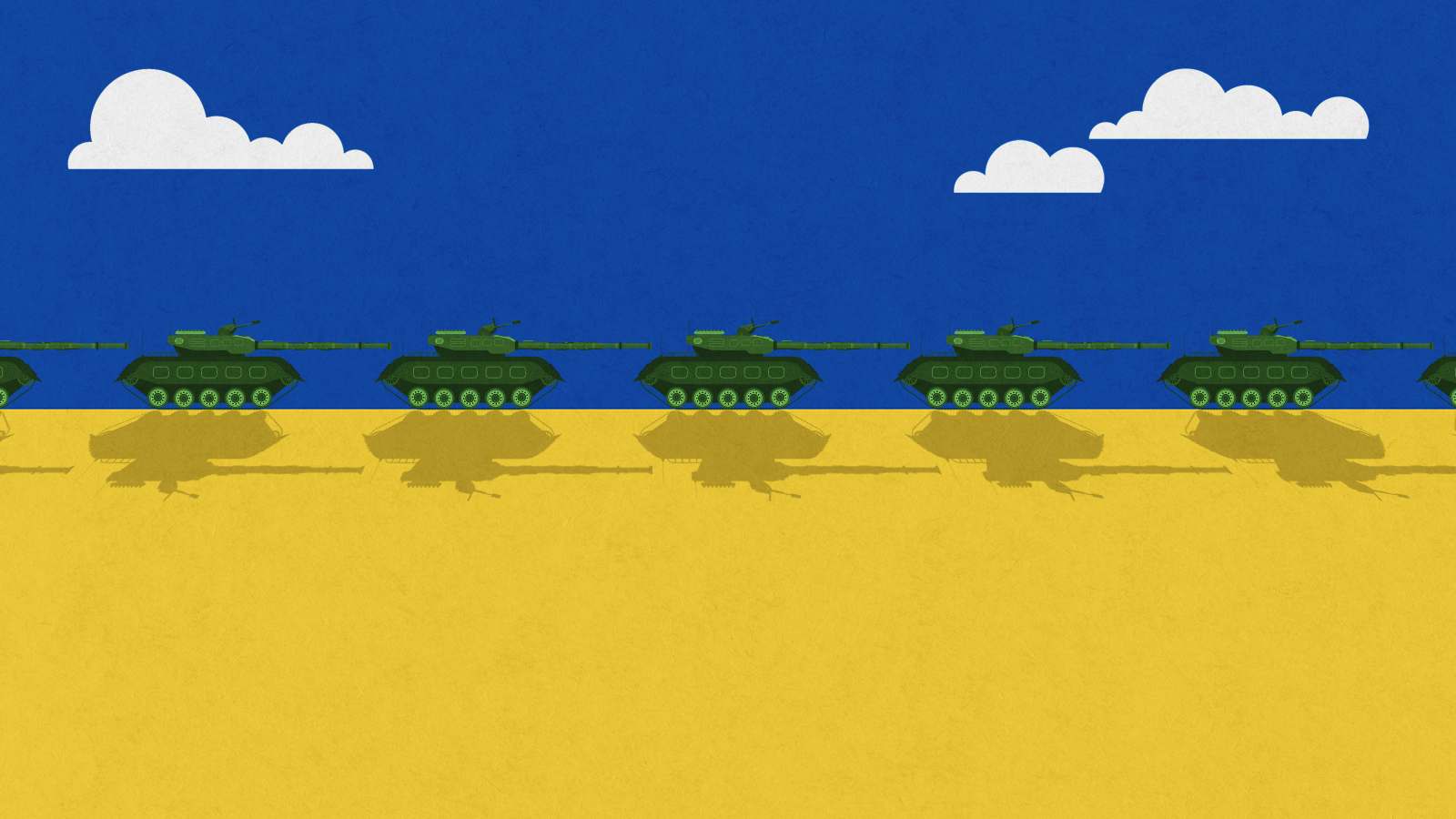
A free daily email with the biggest news stories of the day – and the best features from TheWeek.com
You are now subscribed
Your newsletter sign-up was successful
Ukraine has long wanted Western tanks for its war against Russia. Now it's getting them. The U.S., Great Britain, Poland, and France have all pledged to send armored fighting vehicles to the embattled country as it attempts to push out the invaders. "American Abrams tanks and German Leopards … would give it a chance of punching a hole through the Russian-held land bridge that connects occupied Crimea to Russia," The Economist reports. Ukraine has been asking for tanks since the beginning of the nearly-year-old war. Why have Western nations waited so long to supply them? And will they result in a Ukrainian victory over Russia? Here's everything you need to know:
Why does Ukraine want Western tanks?
"Tanks. This is what we think about every day. Every minute," the Ukrainian Ministry of Defense tweeted on Monday. To be fair, the country isn't completely lacking tanks. Ukrainians have captured a fair number of Russian tanks and have refurbished older Soviet-era tanks, but believe Western tanks like the "more modern American-made M-1 Abrams and German-made Leopard tanks would add a powerful punch that could help Kyiv's forces capture and hold more ground" than their older counterparts, Politico reports. In other words: While Ukrainians have defended their country with incredible effectiveness, they believe they need tanks for a strong offense to push the invaders completely out of their territory.
Wait. Hasn't this been a bad war for tanks?
The war has been defined by images of crumpled and destroyed Russian tanks, causing some observers to question if they're still useful in modern warfare. As of October, Forbes reports the invaders were losing an average of 10 tanks a day to Ukrainian attacks. That might be less about the uselessness of tanks and more about Russian morale: "Half of the tanks the Russians have written off since early September were abandoned by their crews and seized by the Ukrainians." Popular Mechanics adds that while the war has proven that tanks are not invincible, fighting armies "still need an armored vehicle that can swiftly cover ground, protect its troops, and offer firepower of its own."
The Week
Escape your echo chamber. Get the facts behind the news, plus analysis from multiple perspectives.

Sign up for The Week's Free Newsletters
From our morning news briefing to a weekly Good News Newsletter, get the best of The Week delivered directly to your inbox.
From our morning news briefing to a weekly Good News Newsletter, get the best of The Week delivered directly to your inbox.
Why have Western countries hesitated to send tanks?
The U.S. and its NATO allies have been slow to provide tanks "due to a perception that they're offensive weapons of aggression that Russia could jump on to broaden the scope of the war," Sébastien Roblin, writes for NBC News. But there are also logistical problems. "New tanks use an awful lot of fuel – Abrams in particular are extremely fuel hungry," The Economist's Shashank Joshi tells France24. "Maintenance takes a lot of effort, while spare parts are in huge demand." One anonymous U.S. agreed, telling Politico: "You don't want to give them something that's going to break down and run out of gas and they can't refuel them." From that standpoint, German-made Leopard tanks might be a better fight for Ukraine's military.
So what's going to Ukraine now?
That's still in flux. The U.S. has already pledged to send 50 Bradley Fighting Vehicles, which aren't as fearsome as Abrams tanks but still pack a punch: It's a 36-ton vehicle equipped with both a missile launcher and a 26-mm gun. France and Germany have also pledged to send similar "light armored vehicles." Those pledges seem to have opened the floodgates: Britain is now expected to give a dozen Challenger 2 battle tanks to Ukraine. And Poland plans to send 14 of its Leopard tanks as well — though, because of export controls, that move requires German approval. Ukrainian President Volodymyr Zelensky is pushing for more. "One state cannot help us with Leopards, because we are fighting against thousands of tanks of the Russian Federation," he said this week.
Will the new tanks help Ukraine win the war?
They should change the balance of power, Timothy J. MacDonald writes for the Council on Foreign Relations. Even just the "light tank" Bradley Fighting Vehicles provided by the U.S. "will give Ukrainian forces greater mobility, agility, and protection in support of infantry operations." But the changes won't be immediately apparent: Ukraine's military needs time to adjust their fighting doctrine and figure out the "logistics trail" of how to supply and maintain the new weapons. That makes it more likely we'll see the machines in action during a spring offensive. If they do prove effective, though, Russian President Vladimir Putin might lash out at Ukraine's Western supporters for providing the armament. The tanks "could be seen as crossing a red line, leading to increased saber-rattling and threats of the use of nuclear weapons."
A free daily email with the biggest news stories of the day – and the best features from TheWeek.com
Joel Mathis is a writer with 30 years of newspaper and online journalism experience. His work also regularly appears in National Geographic and The Kansas City Star. His awards include best online commentary at the Online News Association and (twice) at the City and Regional Magazine Association.
-
 Political cartoons for February 20
Political cartoons for February 20Cartoons Friday’s political cartoons include just the ice, winter games, and more
-
 Sepsis ‘breakthrough’: the world’s first targeted treatment?
Sepsis ‘breakthrough’: the world’s first targeted treatment?The Explainer New drug could reverse effects of sepsis, rather than trying to treat infection with antibiotics
-
 James Van Der Beek obituary: fresh-faced Dawson’s Creek star
James Van Der Beek obituary: fresh-faced Dawson’s Creek starIn The Spotlight Van Der Beek fronted one of the most successful teen dramas of the 90s – but his Dawson fame proved a double-edged sword
-
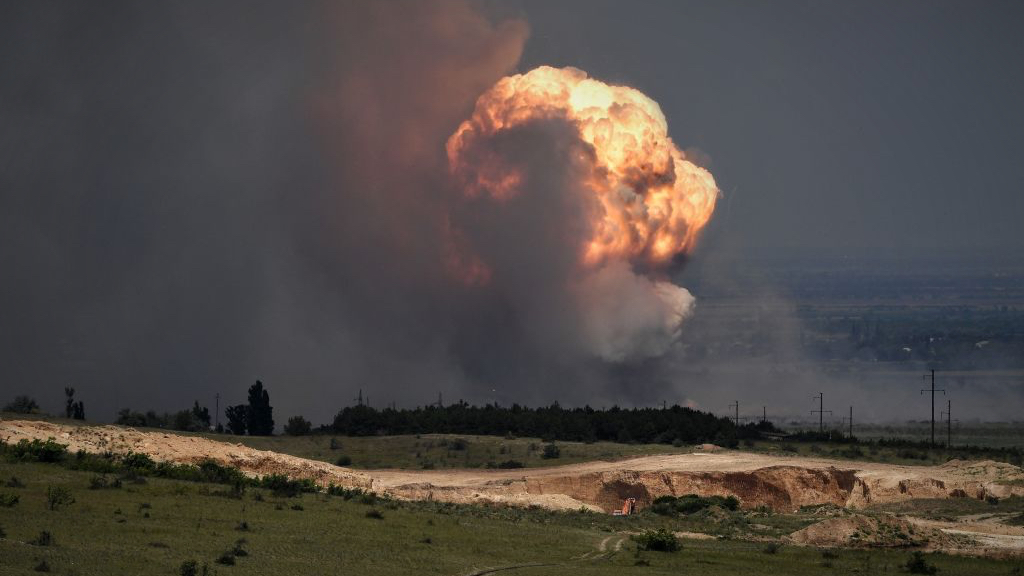 Russia's Crimea fleet shipyard on fire after Ukrainian missile strike
Russia's Crimea fleet shipyard on fire after Ukrainian missile strikePhotos and videos showed huge explosions and raging fires at the Sevastopol Shipyard
-
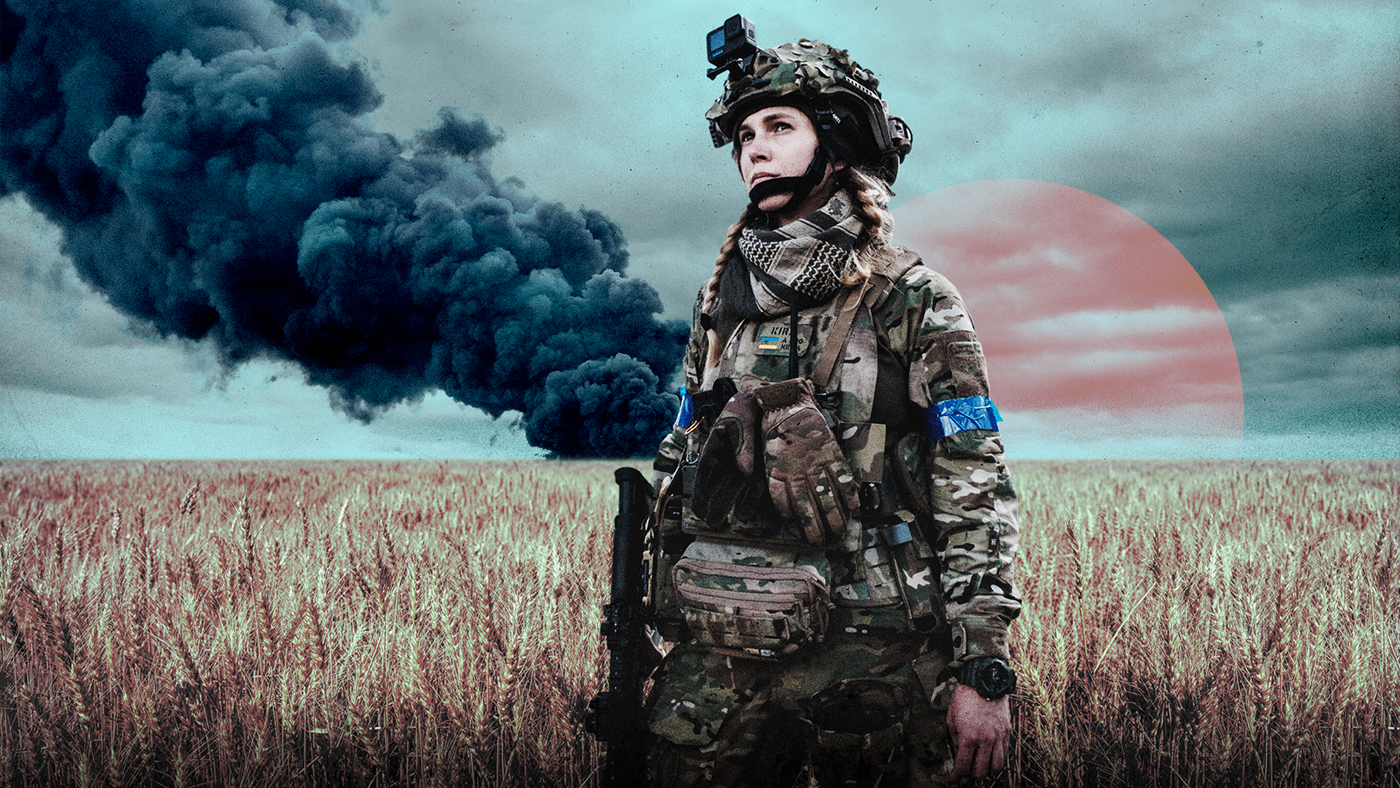 Has Ukraine's counteroffensive become a 'war of attrition?'
Has Ukraine's counteroffensive become a 'war of attrition?'Today's Big Question An expected thrust has turned into a slog
-
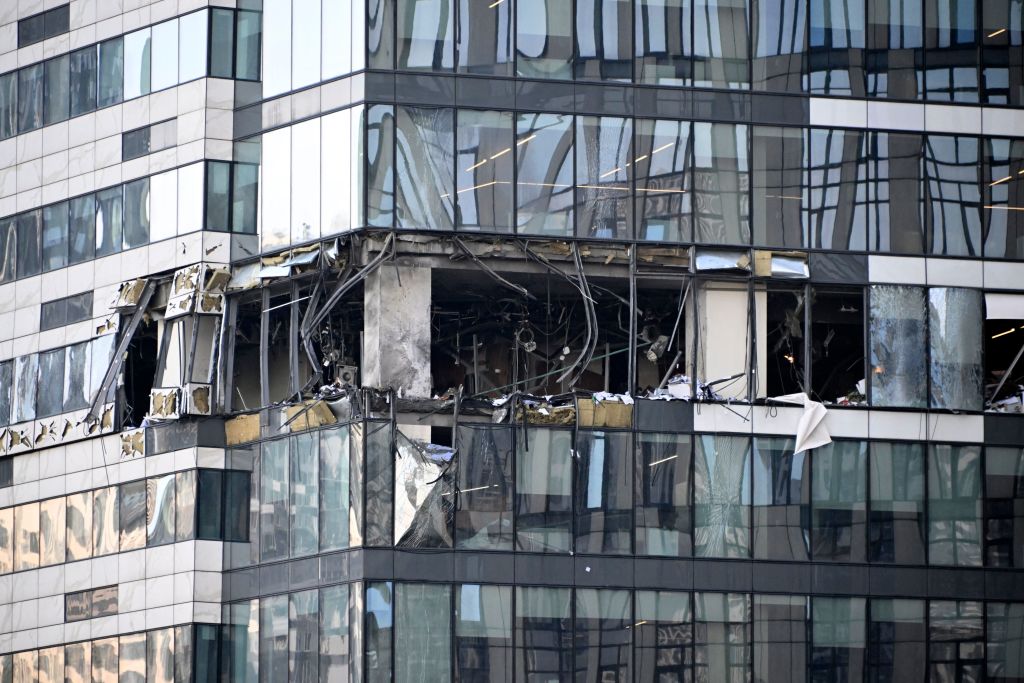 Saudi Arabia to host Russia-less Ukraine peace talks, Kyiv confirms, as Moscow hit by more drones
Saudi Arabia to host Russia-less Ukraine peace talks, Kyiv confirms, as Moscow hit by more dronesSpeed Read
-
 Is the 'vibecession' over?
Is the 'vibecession' over?Speed Read The IMF reported that the global economy is looking increasingly resilient. Is it time to start celebrating?
-
 The U.S. veterinarian shortage crisis
The U.S. veterinarian shortage crisisSpeed Read With an anticipated shortage of 15,000 vets by 2030, it will be harder to get care for pets
-
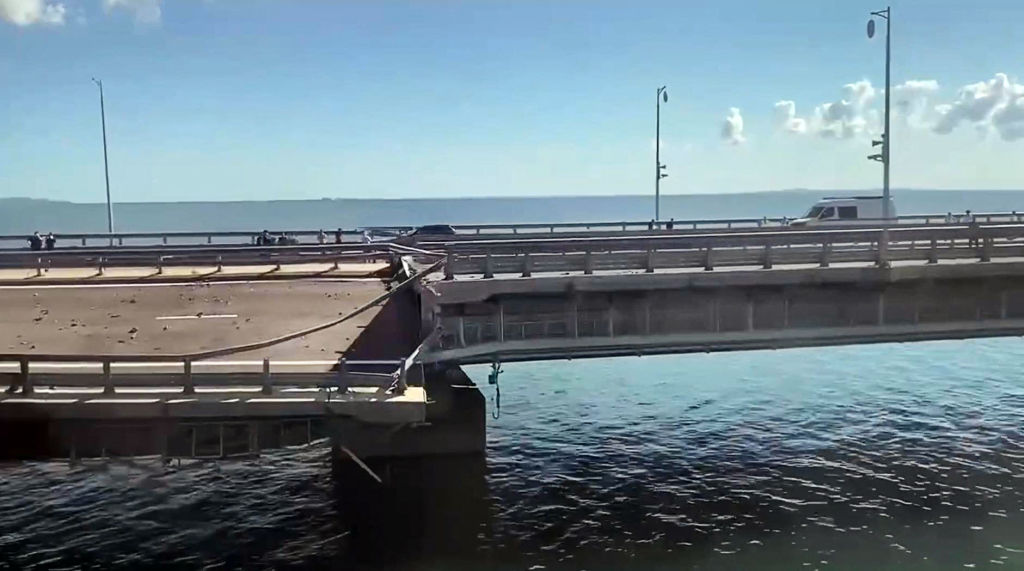 Attack attributed to Ukraine naval drones damages key Russian bridge to occupied Crimea
Attack attributed to Ukraine naval drones damages key Russian bridge to occupied CrimeaSpeed Read
-
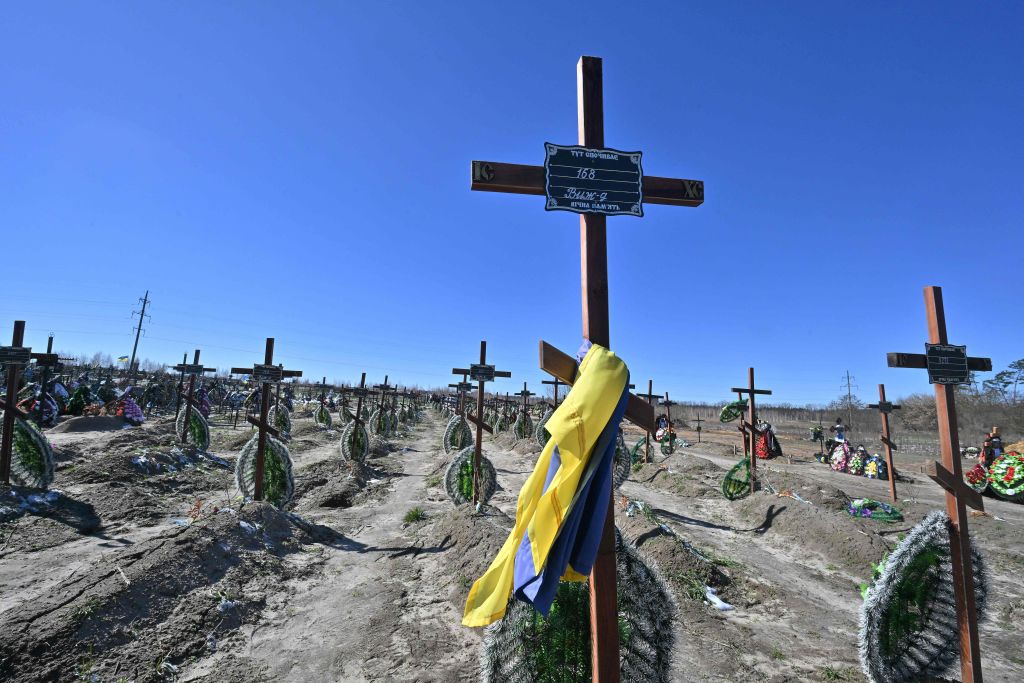 Inside Russia's war crimes
Inside Russia's war crimesSpeed Read Occupying forces in Ukraine are accused of horrific atrocities. Can they be held accountable?
-
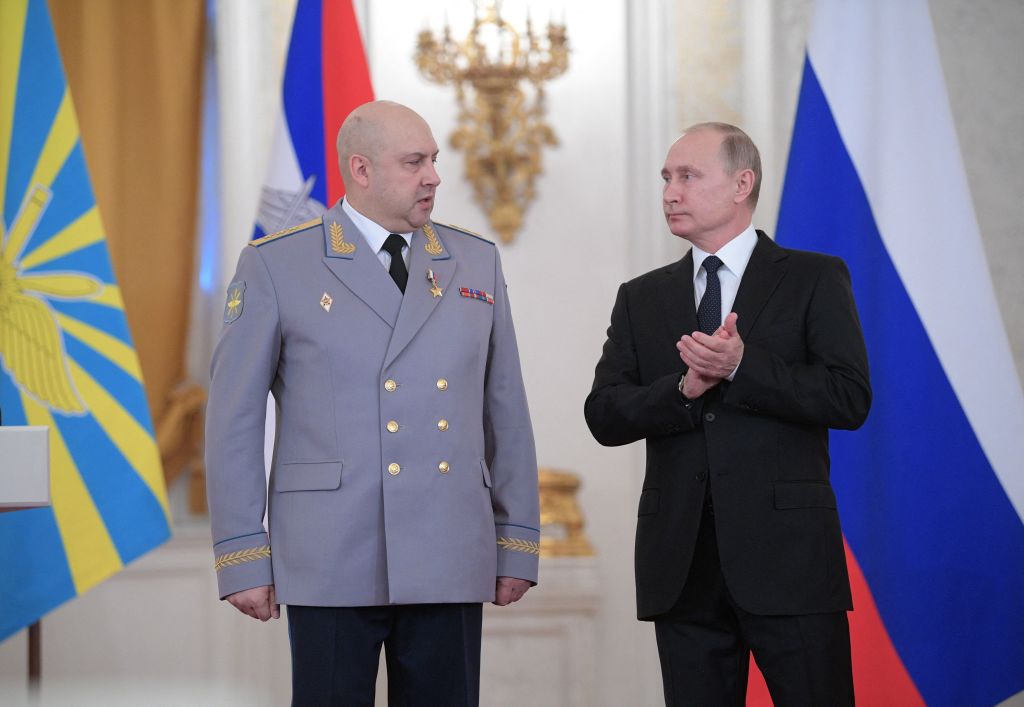 Top Russian generals killed, fired, disappeared after aborted Wagner mutiny
Top Russian generals killed, fired, disappeared after aborted Wagner mutinySpeed Read
